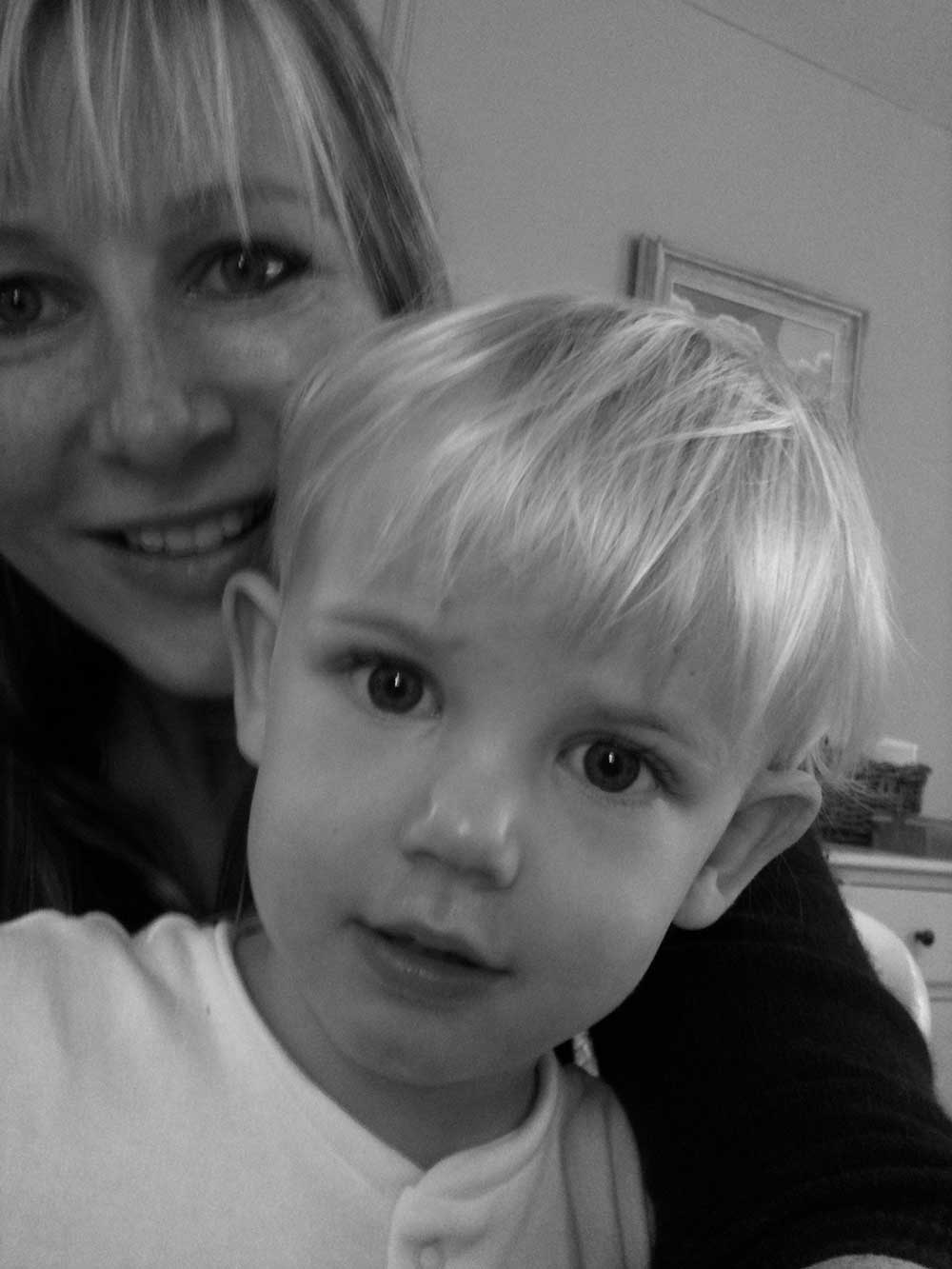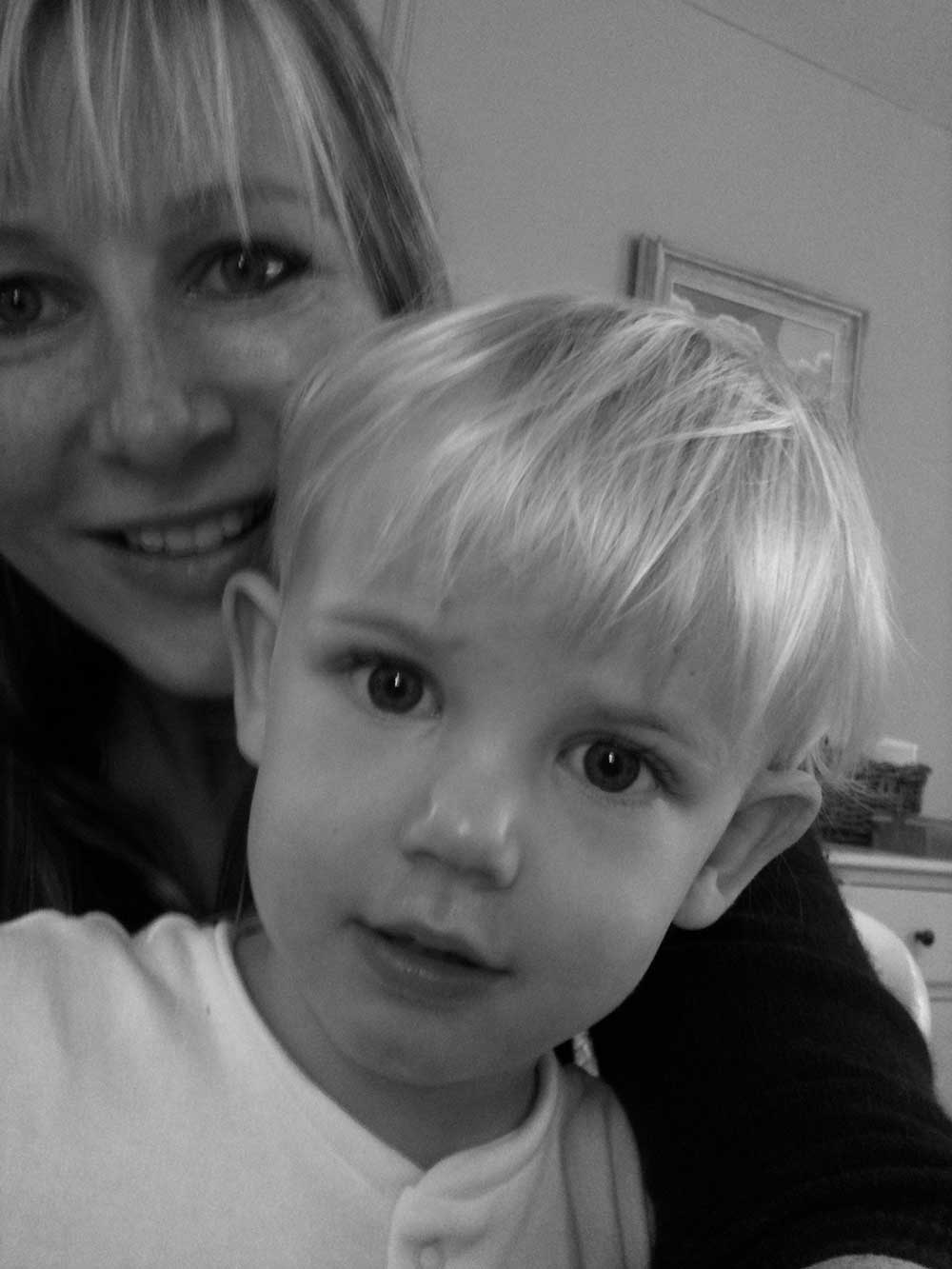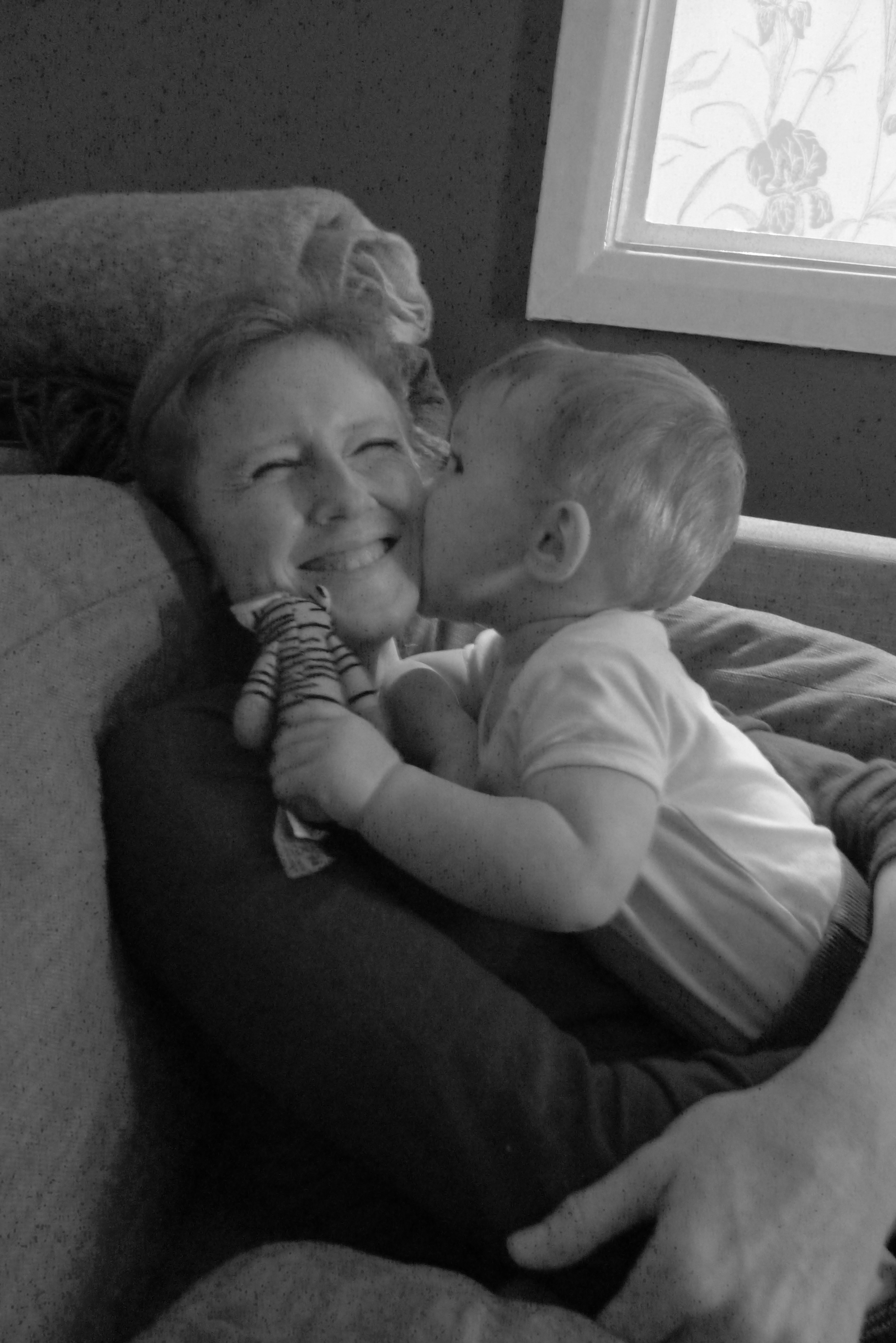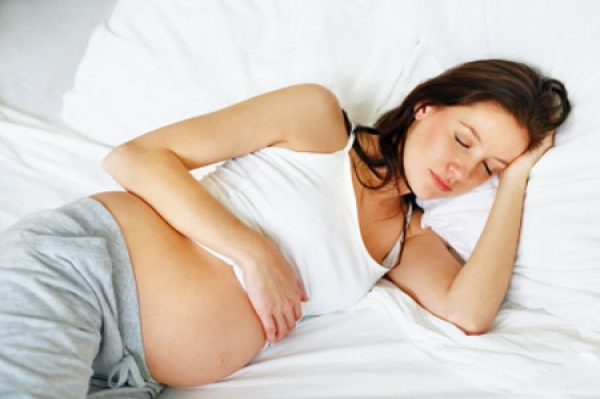this season’s ‘must have’ accessory – modeling with a bump
I found out I was pregnant a couple of days before Father’s Day and decided I’d get my partner a Father’s Day card to announce the news. However, the excitement got the better of me and I ended up telling him the day before! We’d been trying for about 7 months but were still shocked and I remember my other half saying the immortal line “It wont really change much though will it?!”
I found the first trimester quite challenging. No one had ever warned me that “morning” sickness can actually be an all day thing (it even woke me up in the middle of the night!) On the plus side, I was very pleased to not be physically sick because the constant nausea was enough of a struggle to deal with! I think one of the main things I found difficult was not being able to tell people why I was suddenly off my food, was gaining weight and feeling exhausted. On shoots I was finding it hard watching people eating amazing looking food and I’d be sat picking at a dry bagel as it was the only thing that wouldn’t make it worse!
At 7 weeks we had a little scare and had to go for a scan but seeing the little blob on the screen with its tiny heartbeat was one of the most amazing moments. It made waiting for the 12 week scan feel like forever!

My second trimester was much better – my appetite returned, the morning sickness left and I loved being able to tell people that I was pregnant. During my second trimester I started doing pregnancy yoga which I found to be really beneficial. I’ve never been a gym bunny but enjoyed Pilates and walking and the yoga helped me feel like I was getting my body ready for labour.
The first few weeks of my third trimester felt like a switch had been flipped. I’d gone from feeling glowing and full of energy to feeling exhausted and suffering with indigestion which was triggered by my one main craving – orange juice! I also started with PGP (Pelvic Girdle Pain) which was really frustrating – going from walking at my normal fast pace to having to waddle everywhere was not fun. Combining that with my ever growing bump made the daily challenge of getting my socks on laughable and we’ll not speak of the horror that is my unpainted toe nails!
I feel very lucky that I’ve been able to keep modeling during my pregnancy and, overall, I’ve felt really well and coped much better being pregnant that I imagined I would. I’ve worked with some great clients including the lovely girls at Amoralia and it’s been a really interesting experience learning how to pose in a completely different way. Plus the baby seems to enjoy it as he’s forever wriggling about on the shoots, making my bump a weird shape!

I’m now only 2 weeks away from my due date and I’m really looking forward to finally meeting the little guy!
Emma was the beautiful model for our last shoot (you’ll see her in some of our new collection photos on our website) and had her little boy last week! Congratulations, Emma!
The ‘Pink Ladies’ and my fairy godmother of breastfeeding…
When I was pregnant with my first baby I was given all the information about breast feeding that mums-to-be are – the leaflets showing a good latch, the DVD with happy stories, the midwife telling me that I should breast feed – but I still really didn’t have a clue what to expect. Not even the knitted breast produced by the NCT tutor helped (can’t think why)! I suppose what all of that told me was that breast feeding is really important and you really should give it everything you’ve got. But what it didn’t tell me was how it would actually be.
So how was it… actually for me? So, I’d just gone through the most mind bogglingly massive event of my life – giving birth to my son. I was exhausted but elated… not really wanting to do anything ever again apart from lie still and gaze at the tiny new baby. Then the chirpy midwife says, ‘right, let’s get this baby feeding!’ What, now?! I know I’ve got to, but can’t it wait just a little… I don’t have a clue what to do and I’m knackered?!
It’s a strange feeling having your nipple manually handled into a baby’s mouth (a baby who, by the way, also didn’t have a clue what he was doing!). The midwife seemed to feel happy that we’d got a good ‘latch’ and we were happily discharged home just a couple of hours after the birth. But once we were home, I really didn’t feel confident that I knew how to feed this little person. It seemed to take ages to get him latched on to the breast, I couldn’t really tell if he was taking anything and my nipples were not appreciating all this attention. So much for all those gushy stories about breastfeeding! And then along came my fairy godmother – the amazing breastfeeding advisor who visited us at home and actually helped my son and me to find our own technique that worked for us without the need to tweek or prod or belittle. She kept popping in or calling until she was sure that my confidence levels were up. And my confidence levels did increase, as did, gradually, my enjoyment of breastfeeding.
But that’s not to say that the early weeks of breastfeeding suddenly became a doddle. I remember aches and pains and bleeding nipples (on that note, there was a scarey day when I saw blood in my baby’s milk sick, then worked out it wasn’t him, it was blood from my nipple in the milk… phew!). So when I hear people saying that breastfeeding is easy or pain-free, for those early weeks, I really can’t agree. But I would agree that if you and the baby manage to keep going with it, it does get easier and eventually it becomes a pleasure.
I was lucky. My body managed to produce enough milk for my son, he managed to sort out how to feed and between us we kept breastfeeding for 13 months. So I became a fan of breastfeeding. But equally I would always say to friends who ask about it that of course, as a mum, you’re trying to do everything that’s best for your baby… but you’ve also got to look after yourself. And if breastfeeding isn’t working out for whatever reason, then surely an exhausted, stressed out mum isn’t best for baby?
Katie is a speech therapist and mum to Rowan, 3 and Isla, 22 months
Just a little note – the ‘breastfeeding advisor’ that Katie refers to is one of the ‘Pink Ladies’ who help new mums in the North East Essex area, around Colchester and Tendring. They are all trained to UNICEF Baby Friendly standards. If you live in this area, call their Breastfeeding Support Line on 01255 202714.
Katie will also be writing a part 2 for us, about her experiences with a tongue-tied Isla, her (real) top tips for breastfeeding and what she expects for baby number 3!
my experience encouraged me to start my own company…
My pregnancy story isn’t a particularly conventional one. Back in 2008, I was madly head over heels in love with my son’s father. I was pretty certain we would be having kids within the next 2 years but we just needed to settle ourselves in our very own home first. In the middle of 2009, I remember being off food for at least a week, maybe two weeks, which is completely unlike me. I LOVE food. I remember experiencing a weird, unpleasant taste in my mouth despite brushing my teeth and brushing again to rid the horrible taste. Then it dawned on me that I may be …. LATE. After a date with my friend over dinner in my favourite Italian restaurant (where I couldn’t stomach my usual favourite dish) I thought I ought to buy a pregnancy test just to reassure myself that, y’know, I wasn’t pregnant and I was in fact just ‘unwell’.
Within an hour of returning home; the stick confirmed I was indeed pregnant. It was completely unplanned but it was such a happy, if unexpected, discovery.
The first 3 months weren’t pleasant. Why they call it ‘morning sickness’, I don’t know. I woke up; felt nauseous. I got ready for work; felt nauseous. I’d sit on a bus on my daily commute, smelling that awful public transport stench that is 200 times worse when you’re pregnant; felt nauseous. Arrive at work, try to put on a smile, run to the toilets – heave. Back to my desk, felt nauseous. Run to the toilets, heave, back to work. You get the idea! And all my colleagues would wonder why I kept making trips to the doctors, why I looked so unwell… it was not easy to keep this little secret to myself until we had our 3 months scan.
Finally, the 3 month mark passed and my bump was no longer a secret. However, the nausea did not pass. In fact, it didn’t pass until after about 4 months. 4 whole months of feeling wretched, nauseous every single day. Who knew it was so draining and that you could actually survive your first trimester eating very little and feeling so UN-HEALTHY. Where was the glow??
Into my second trimester, thankfully – it got a little easier. I no longer had to start the day eating oat biscuits in bed. I could get on with my day as normal but as my bump grew bigger, there began the wardrobe dilemmas. Luckily, over the years, I happened to hoard a huge amount of independent labels with that oversized Japanese drapey look. The likes of Boessert-Schorn, Complex Geometries and unknown independent designer pieces purchased from Hong Kong’s malls came really useful. But I was puzzled as to why the current maternity wear offering was so … bland, so drab, so flowery, so mumsy.
I sailed into my third trimester and was getting by on maternity leggings and oversized tees, specifically I recall an Ann-Sofie Back x Topshop number and oversized shirts. I remember needing a dress for a friend’s birthday dinner and having to default to an ASOS ruched, wrap front maternity dress. It was uber feminine, uber fitted and not particularly me…
When my son arrived, I then had the task of finding nursing-friendly tops and dresses. I had a button front Whistles denim dress which was ideal but otherwise; I refused to buy into the cheap jersey stretchy t-shirts on offer. Instead, I stayed at home a huge amount of the time and opted for flashing at home. Not a great solution for a first-time mum in need of fresh air and bonding time with other new mums!
Within a year of my son’s arrival; my idea of a contemporary clothing line which was bump-friendly but not maternity-only took shape. In 2012, I launched Keungzai.com in response to my personal experience, a solution to my own wardrobe dilemmas during and after pregnancy. Keungzai delivers affordable luxury for style-savvy women, mothers and mums-to-be. Contemporary pieces that are functional yet modern. I have loved dressing women since 2012 in our ethically, British-made designs with great responses from women who were previously exasperated on the search for maternity-friendly clothing!
This is part one of a 2 part guest blog post from Michelle, the owner of Keungzai.com and mum to M., 3 and a half. In the next post, Michelle will be helping you with some bump-friendly fashion and styling tips depending on your stage.
I breastfed for 14 months, but…
I got off to a slippery start with breastfeeding. Literally – my son would only latch onto one side, so three days in I had one functioning breast and one football. Every time I presented it to the poor mite he would just slide off. Then I went to a breastfeeding clinic and a lovely, no-nonsense lady called Linda pummelled it into submission. It was one of those agonies that seems small in the mind-bending few weeks after birth. Though it was a relief to have him feed from both sides, I do remember it being uncomfortable for the first month, with that needling pain that curls your toes.
Still, it worked pretty well after that. There is something wonderful about knowing you can feed your baby absolutely anywhere with no preparation. We fed on the bus, in the Groucho, on a hillside, even – in a moment of desperation – on a bench outside a pub one winter’s evening. But we also fed a whole lot in the middle of the night. In fact Benjy didn’t sleep through till I stopped breastfeeding, at 14 months.
Life with no sleep was so terrible that I resolved not to do it for so long if there’s a next time. I have no problem at all with formula; I think breastfeeding is unreasonably overhyped at the moment. I just thought I could avoid all the faff of measuring and sterilizing by nursing through to a year, when we could move onto cow’s milk. You never quite know what will work for your child – perhaps it was the new physical activity of being a toddler that made him sleep for longer, rather than the withdrawal of the prospect of night feeds. I don’t want to lay all the blame on my boobs, enticing as they may have been. And yes, I use the past tense intentionally. Health benefits aside, all that suckling has taken its toll.
Lily Williams is a film producer and is mum to Benjy, 21 months.
Optimise your labour preparation with Osteopathy!
Osteopath Stephanie James (pictured below) returns with another fascinating article about osteopathy in pregnancy.
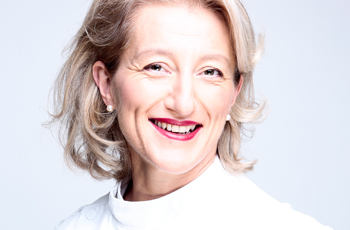 Pregnancy is a unique and powerful experience. Vast musculoskeletal, hormonal and emotional changes will take place in your body over a relatively short space of time.
Pregnancy is a unique and powerful experience. Vast musculoskeletal, hormonal and emotional changes will take place in your body over a relatively short space of time.
Up to 66% of pregnant women experience some back pain. Many causes are well established facts:
* considerable postural changes are necessary to accommodate the increasing size and weight of the baby;
* the rising level of the hormones elastin which increases the ligaments laxity to accommodate the changes often leads to unstable joints and new pain;
* poor support from the abdominal muscles develop as they stretch and weaken;
* increase of the size of the breast also create some aches and pains. (Jules says: click here to check out our maternity bras and Amoralia size chart)
Osteopathy can help you with all these discomforts directly associated with the new demands of your body during pregnancy. But it can also offer you more!
Preparation for labour:
It is important to note that any pre-existing back problems or strains from past trauma (accidents, or falls for example) leaves some legacy in the body that might manifest itself during the pregnancy as changes take place.
If untreated, these underlying strains might lead not only to further musculoskeletal problems –especially around the pelvic region – but they might also have an influence on the quality of the labour and delivery as any restrictions identified in the pelvic area can limit the ability of the bones to separate and move out during the labour.
By addressing these areas of dysfunction, the osteopath will ensure to optimise the space where the baby grows and consequently encourage it to lie correctly and move into a better position.
That is why when you come and consult an osteopath, the latter will always ensure to evaluate the mother’s pelvis and will aim to re-establish a better balance to allow an optimised passage of the baby through the birth canal.
 Is Osteopathy safe during Pregnancy?
Is Osteopathy safe during Pregnancy?
Osteopaths are highly skilled and undergo a minimum of four years training. Gentle osteopathic techniques are perfectly safe at all stages of pregnancy. The cranial osteopathic approach is a
particularly gentle way of working with the body’s own natural mechanism for releasing and re-balancing tensions, without force.
Other conditions associated with pregnancy that Osteopathy can help with:
* Sciatica
* Repetitive Strain Injury (RSI)
* Carpal Tunnel Syndrome
* Pelvic floor muscle weakness
* Abdominal muscle weakness
* Symphysis Pubic Dysfunction (SPD)
* Nausea and vomiting
* Shortness of breath
* Anxiety and stress
* Variscose veins
If you wish to book an appointment, please contact Stephanie James on 07968 401 997. www.sj-osteopathy.com
World Prematurity Day – Tommy’s guest post
Guest post via Tommy’s Charity, who are Amoralia‘s charity of choice, for #WorldPrematurityDay
With thanks to Kylie Hodges (@kykaree) who is a keen supporter of Tommy’s and mother of Joseph who was born at 27 weeks.
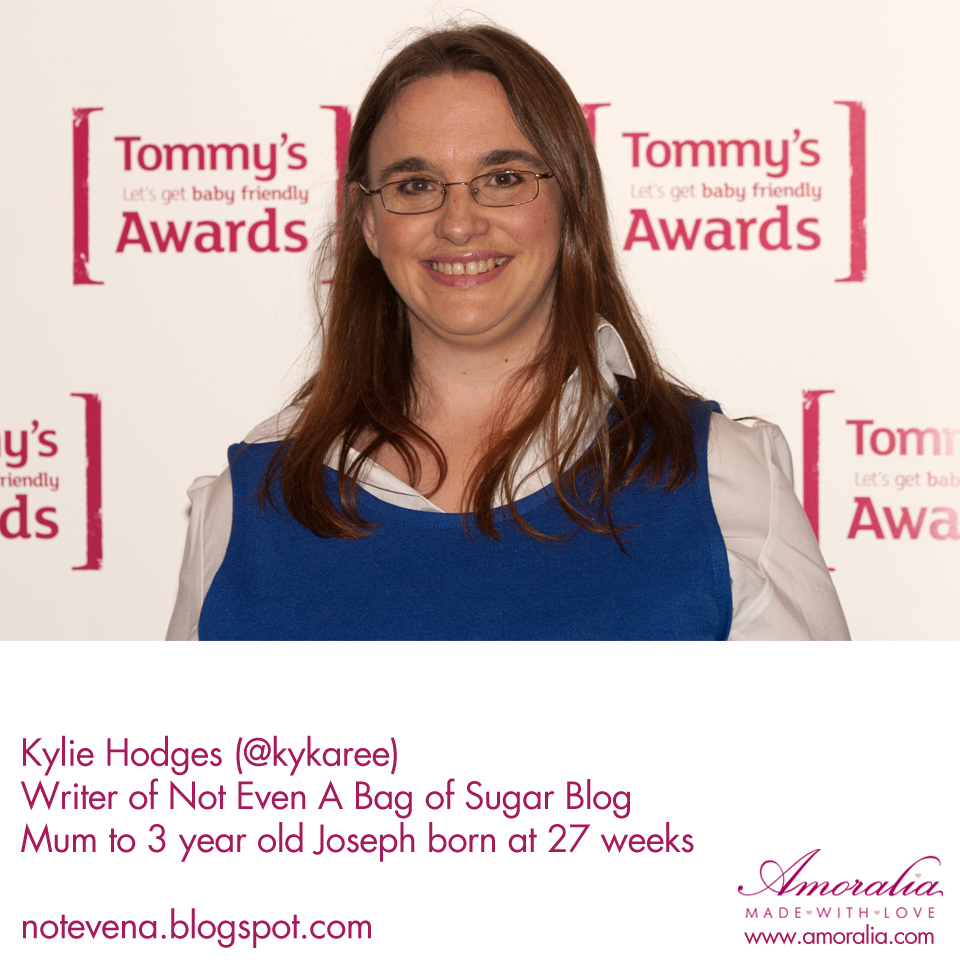 “You sit in the waiting room of your antenatal clinic like every other expectant mother. You look around the room, at women at various stages of pregnancy. It unites us all, we all have this in common: being pregnant, expecting a baby.
“You sit in the waiting room of your antenatal clinic like every other expectant mother. You look around the room, at women at various stages of pregnancy. It unites us all, we all have this in common: being pregnant, expecting a baby.
But without knowing it you are different. You are one in 13. You won’t deliver a full term baby, you will deliver prematurely. Maybe like me, you will develop pre-eclampsia. You might go into pre-term labour, your placenta might fail, you might have a medical condition that necessitates early delivery of the baby, there are many reasons and sometimes there are no reasons for pre-term birth.
Suddenly your world won’t be Moses baskets and the latest prams. You won’t be thumbing through the Mothercare catalogues or browsing the nursery stores. No, the journey you will take will be very different.
Your baby lies in a plastic box. Perhaps they are having help with their breathing, being fed through tubes. Perhaps they have some additional complications, your tiny baby might need surgical interventions. You are having impossibly complex conversations with consultants and nurses, having to make decisions that will have far-reaching consequences. Suddenly your baby’s life lies in the hands of strangers – experienced, well-trained experts but strangers all the same. You are no longer the best person to take care of your baby’s complex and changing needs. And that hurts.
Motherhood interrupted. You are no longer taking care of your baby in the womb. You are restricted to six hourly nappy changes. The rest of the time sitting, waiting, hoping and maybe praying. Every day you will go out of the ward for lunch, to use the toilet, to phone anxious relatives and you will see mothers and fathers walking down the corridor with their full-term babies in car seats, going home. If your baby has been born as early as mine was at 27 weeks, you will have days and days of it being rubbed in your face. You are different. Your baby is different. Your journey is not the same.
However, as your journey progresses, things start to change. You find an inner strength you didn’t know you had. You start to understand the machines, the equipment, and the medicine regimes. You start to get to know your baby in a way few others will have the opportunity to. You see your baby grow in ways that seem so improbable. When Joseph was born his ears were still fused to his head, he had no nipples. I got to see stages of development and growth usually hidden away.
Over time, you learn how to deal with doctors, nurses and other professionals. You learn how the system works. You know what developmental stages to look out for, the next steps to progression from the intensive care unit, to high dependency, to nursery and eventually the holy grail- the rooming in room for a couple of nights to learn how to take care of your baby’s needs. Alone. You get used to the fact that your milestones are different. That you are waiting for your baby to learn to breathe, feed and eventually manage the two simultaneously, more difficult than you might imagine.
My baby was born at 27 weeks gestation three years ago. Our experience I think, in some ways does define the way I parent now. I hold on quite tightly but work to let him go, to let him shine. We are one of the exceedingly lucky families. My son defied all expectations, despite being only 1lb 7oz at birth, he has now caught up with his peers and is thriving at preschool.
Having Joseph at 27 weeks completely changed my outlook on life. I was taught a very hard lesson in not ever taking things for granted. I learned that I am, as the cliché goes, stronger than I ever could have imagined; braver than I ever thought possible. Joseph taught me that in the tiniest little human, there is an unbreakable will to survive. He taught me trust.
I strongly believe that prematurity needs to be looked at in closer detail by the NHS and health professionals. I believe too often we say “well it’s one of those things”. It appears to me that there is an acceptance that one in 13 babies will be born prematurely. Prematurity is costly, it comes at a huge personal cost to families and babies and a financial cost. I strongly believe we need much better care of high risk pregnancies, from identifying which pregnancies are at high risk, and providing appropriate support.
I also strongly believe that the heroic measures taken by our neonatal teams need to be backed up by investment in the people that make up those teams, and the equipment that it requires. I also believe that we need a much more cohesive system to provide support to those children who are born prematurely and will need long term, often lifelong care and equipment provision.”
Tomorrow is World Prematurity Day and it is a time when we can focus on prematurity, celebrate our tiny babies, and truly concentrate our efforts on prevention and care.
To read Kylie Hodges’ blog click here
Kylie has contributed to a guide on premature birth entitled ‘Having a Premature Baby’ which has been produced by the baby charity Tommy’s. The guide aims to support families expecting a premature baby or who have recently had a baby arrive early. The guide is funded by the Asda Foundation and can be ordered for free from www.tommys.org/store
Tommy’s funds medical research and provides information on the causes and prevention of miscarriage, premature birth and stillbirth.
For more information visit www.tommys.org/worldprematurityday
This article first appeared on the Independent Blog earlier today.
Getting a good night’s sleep
This week’s guest post, How to get a good night’s sleep, by Kate Bedding, parenting consultant for the NCT Bednest (and enter our prize draw for this fab prize! scroll down to enter)
Just how can you ensure you get a good night’s sleep? If you’ve just given birth in the last few weeks you’ll know that this is a question that many new parents are desperate to find an answer to – and not just for mother and baby. The whole family can be kept awake at night during a particularly vocal bout of crying.
 A regular routine, comfortable surroundings and the ability to be able to respond quickly before little sniffles turn into a full-blown wail all help. But importantly it’s creating an environment for your baby that allows them to feel safe and secure enough to sleep.
A regular routine, comfortable surroundings and the ability to be able to respond quickly before little sniffles turn into a full-blown wail all help. But importantly it’s creating an environment for your baby that allows them to feel safe and secure enough to sleep.
Research by the Infant Mental Health Journal highlights that an early physical relationship between mothers and infants is extremely beneficial for the baby’s wellbeing and development, whilst UNICEF recognises that safe bed-sharing, or co-sleeping can assist in creating that strong bond and promoting longer sleep. However, the associated safety concerns, recently further fuelled by the tragic deaths of babies who have shared a bed with their parents, are also enough to put off many parents trying this sleep arrangement.
Health professionals agree that the safest place for babies to sleep is in a bedside crib. The Department of Health and the Foundation for the Study of Infant Deaths (FSID) state that “to keep your baby safe and healthy, the safest place for your baby to sleep – night and day – is in a crib or cot in a room with you for the first six months”.
The NCT Bednest is an innovative solution to the sleeping arrangement dilemma. As an award-winning bedside crib that attaches securely to the side of the parents’ bed, it not only helps mums to sleep close but safely alongside their baby, but also helps those mums recovering from a caesarean or those choosing to breastfeed.
Celebrity fan Jools Oliver, who used the Bednest with her youngest Buddy, even said: “I could practically roll little Buddy from my boob to bed!”
By being so close to your baby and being able to respond quickly to their needs means that babies, parents, and the whole family, get more sleep. In fact more than 90 per cent of those who have used the Bednest, claim it has helped them and their baby get more sleep.
Professor Helen Ball, of Durham University’s Parent-Infant Sleep Lab, explains: “Our research has found that when babies sleep next to their mothers in a bed-side crib, with no barrier in between them, they are able to easily attract their mother’s attention without crying. Mothers are aware of their babies’ arousals and feeding cues more quickly than when they sleep in a separate cot, even in the same room. This makes night-time breastfeeding easier for the mother, while minimising sleep disruption.”
The Prize Draw:
Tamzin Outhwaite, and Jools Oliver loves the Bednest, WE love the Bednest, so, Amoralia has joined forces with Bednest and the NCT Shop to give you the chance to sleep well and sleep safe for free, in the comfort of this stylish bedside baby crib, along with one of our button-through nighties!
Pop over to our facebook page and tell us your sleeping story, do you co-sleep? What do you plan to do if you are still preggers? Then Click here to enter with your email details. x
The NCT Bednest baby crib provides all the benefits of co-sleeping but without any of the perceived risks, allowing you to breastfeed, soothe and bond more easily with your baby without having to share a bed. It’s also a huge help if you’re recovering from a caesarian and your mobility is reduced as there’s no need to get up to breastfeed or comfort.
Its patented design, for babies up to six-months-old, means it can be securely attached to the parents’ bed, with the fold-down side panel creating a safe bridge joining the baby’s sleeping space to that of the parents. Health professionals agree that the safest place for a baby to sleep is in a crib right next to their parents’ bed, so the NCT Bednest provides real peace of mind and a good night’s sleep for all the family.
The NCT Bednest costs £299 and is available, along with lots of additional information on its benefits and how it works, at www.bednest.com and from the NCT Shop at www.nctshop.co.uk or on 08458 100 100.
Guest post: Penny Alexander on the UNICEF breastfeeding research
UNICEF report reveals the cost of failing to support women to breastfeed
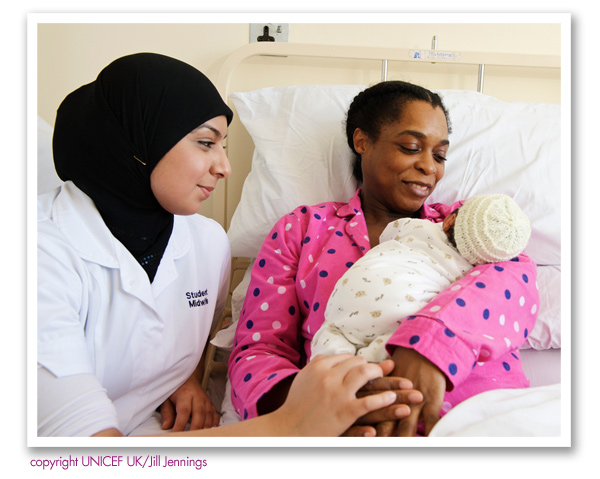 New research by UNICEF has revealed the staggering cost, to women, to babies and to the NHS, of not supporting women who want to breastfeed. I was asked to be among the first to share these findings over on my blog Alexander Residence and I am pleased to be able to share the on the Amoralia blog too. Basically the report suggests moderate increases in breastfeeding could reduce thousands of illnesses and in turn potentially save the NHS an estimated 40 million pounds a year, possibly in as little as one year.
New research by UNICEF has revealed the staggering cost, to women, to babies and to the NHS, of not supporting women who want to breastfeed. I was asked to be among the first to share these findings over on my blog Alexander Residence and I am pleased to be able to share the on the Amoralia blog too. Basically the report suggests moderate increases in breastfeeding could reduce thousands of illnesses and in turn potentially save the NHS an estimated 40 million pounds a year, possibly in as little as one year.
Breastfeeding is an emotive topic, but for once this report isn’t about making women feel guilty. The Infant Feeding Survey indicates 90% of women who stopped breastfeeding in the first six weeks discontinued before they wanted to. Many of those women could have continued to breastfeed with the right support, from health workers, from wider society. We have one of the lowest rates of breastfeeding in the world, the UK is still failing to support women who want to breastfeed. UNICEF want the government to see breastfeeding as a public health issue.
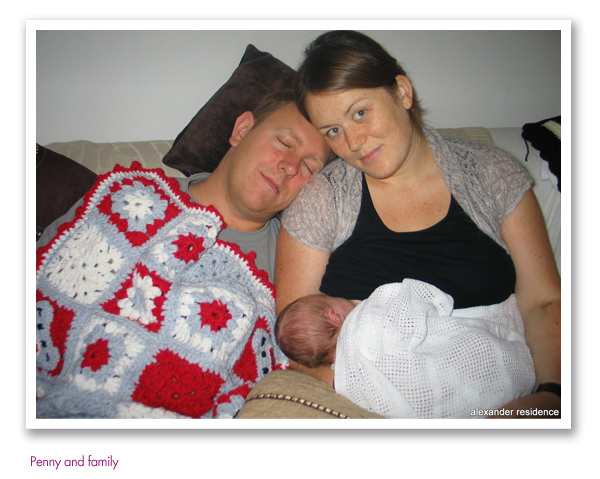 UNICEF’s researchers, from universities across the UK, identified all the illnesses with links to breastfeeding, they then focused simply on the 5 illnesses where evidence of the positive effects of breastfeeding are strongest (breast cancer in the mother, and gastroenteritis, respiratory infections, middle ear infections and necrotising enterecolitis (NEC) in the baby).
UNICEF’s researchers, from universities across the UK, identified all the illnesses with links to breastfeeding, they then focused simply on the 5 illnesses where evidence of the positive effects of breastfeeding are strongest (breast cancer in the mother, and gastroenteritis, respiratory infections, middle ear infections and necrotising enterecolitis (NEC) in the baby).
The report then translated moderate increases in breastfeeding into health benefits for mother and baby, and into 40 million in savings for the NHS:
If half those mothers who currently do not breastfeed were to do so for up to 18 months over their life (e.g. 9 months per child for two children), there would be:
The report is the tip of the iceberg, there are many more chronic conditions, responsible for significant amounts of NHS budgets, such as heart disease, cancers, diabetes, asthma, where breastfeeding is linked to reduced incidence. More research is needed to comment on how significant an impact breastfeeding could have in these areas.
After I read the report I reflected on my own experiences. I might have spent 90 hours in labour, I might have had 2 emergency C sections, but I was incredibly lucky with support when it came to breastfeeding. I had amazing hospital staff and daily midwife visits for the first week, they taught a very tired, emotional and shell shocked me how to feed my baby.
It helped I’d had breastfeeding passed down to me by my mum, that I was surrounded by completely supportive friends and family. I also live in one of the highest concentrations of under fives in the UK, breastfeeding is a very normal sight.
Talking to new mums now, I realise what I thought was ‘normal’ just isn’t, daily midwife visits don’t exist in some areas, women are still made to feel really uncomfortable about breastfeeding, the media still undermines breastfeeding, and the right advice, which could fix so many problems, isn’t readily available.
UNICEF are now calling for government and policy makers to recognise breastfeeding as a major public health issue. UNICEF want to ensure sufficient levels of well qualified staff in the NHS and consistent good quality support services.
UNICEF want legislation to tighten the law and prevent formula companies undermining breastfeeding, urgent research into how breastfeeding helps protect against some of the big killers like heart disease and diabetes, and campaigns to raise awareness of the health benefits.
Preventing Disease and Saving Resources: potential contribution of increasing breastfeeding rates in the UK, was carried out by a multi-university academic team including Dundee University, Oxford University, University of York, Brunel University, and St George’s, University of London, as well as the National Childbirth Trust.
Guest recipe post – breast feeding friendly with Kelly Rennie
Continuing our ‘guest post’ theme whilst Jules continues to enjoy time out with baby Sacha, we asked the lovely Kelly Rennie, the UK’s no.1 Female Fitness Model, and more recently, new mummy, if she would like to share a series of guest recipes with us here at the Amoralia blog.
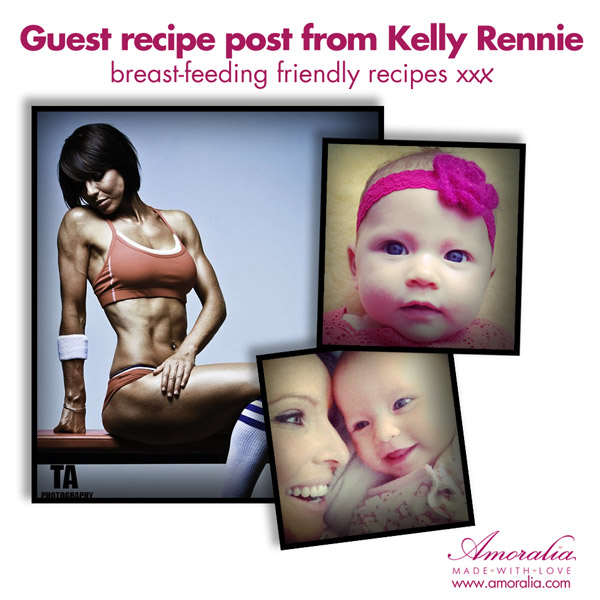 Kelly says on her own blog:
Kelly says on her own blog:
Finding time for eating healthy and exercising was always going to be a priority for me, but some days the exercise just doesn’t happen and that’s okay too…. Finding a balance between all these new challenges is what it’s all about.. So what I will say is for all those mothers out there that have not quite found a balance, ITS OKAY. Making small efforts a time is better than none and if you decide that you need a rest day, rest!!! As it gives you the power to move on the next…
Healthy Chicken and Vegetable Bake – breast-feeding friendly recipe.
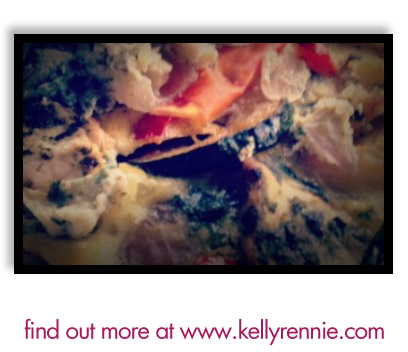 Ingredients:
Ingredients:
2 Chicken Breasts (Organic)
1 Onion (Diced)
2 Red Peppers (Diced)
1 Courgette (Sliced)
1 handful Fresh Spinach (or use frozen)
6-7 Free-range Eggs
1 tbsp Worcester Sauce
1 tbsp Coconut Oil
Method:
1. Fry the onion, red pepper and courgettes in the coconut oil, (for about 5-8min) – Set aside
2. Then fry the chicken on a medium heat with the Worcester sauce until the chicken starts to brown.
3. Mix the eggs in a large bowl, adding the spinach and rest of the ingredients
4. Pour the mixture into a round baking dish and bake on 180 degrees for 15-20 minutes.
Enjoy!
Kelly Rennie has joined forces with UK Personal Trainer of the Year 2012, Katie Bulmer-Cooke to launch ‘The Fit Mummy Revolution’. Sign up to their newsletter here thefitmummymanual.com to find out more about their project to ‘lose your tummy, and feel great about being a mummy!’
and Don’t forget to enter our £250 October Prize Draw to win a 3D/4D babyscan
Guest Post – Tania Smith, Mamaheaven
Those of you lucky enough to have enjoyed a retreat at Mamaheaven don’t need us to tell you have wonderful an experience this is… Amoralia.com asked founder Tania Smith to tell us why she and Paula started Mamaheaven seven years ago.
Tania writes:
It started as a simple idea – to create a space where mothers with babies under 18 months old could practise yoga and get a bit of downtime. Almost instantly it became so much more than that.
From the outset we knew what mothers of young babies needed. As mothers ourselves we knew what we had craved in the early days of our mothering. We were acutely aware that although there is much preparation for birthing (as there should be) there isn’t much postnatally. The reality of 24-7 parenting, juggling work, relationships and other children is extremely challenging and almost bereft of proper support. Mothers rarely get the time to address their own mental and physical recovery after pregnancy and birth which, even if it goes smoothly, is still the most defining and transitional experience.
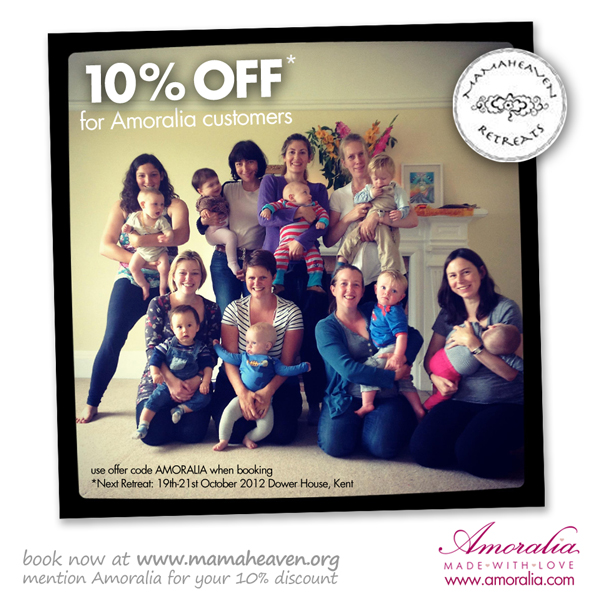 We were determined to address that balance as much as we could by taking care of mothers’ minds, bodies and souls. We offer yoga classes, massages, counselling, workshops, baby massage and a non-judgemental atmosphere that mothers thrive in and a crèche that babies love. Our timetable carefully set so that mothers and babies are never separated for too long but for just long enough that mothers can enjoy some much needed and well deserved me-time.
We were determined to address that balance as much as we could by taking care of mothers’ minds, bodies and souls. We offer yoga classes, massages, counselling, workshops, baby massage and a non-judgemental atmosphere that mothers thrive in and a crèche that babies love. Our timetable carefully set so that mothers and babies are never separated for too long but for just long enough that mothers can enjoy some much needed and well deserved me-time.
We brought together a skilled team of old and trusted friends that we knew could address the complex issues that mothers face and take them to a uniquely ‘heavenly’ place.
From the start there was mother of three, Paula Gallardo who believed in communication of emotions and empowering women to believe in themselves and listen to their inner core when making decisions about how to care for themselves and their families. Her children’s godmother, Hetty Los, was a trained Jungian counsellor who’s wisdom is needed at every retreat. Old friend, Erika Tourell from London’s Triyoga joined us to teach post-natal yoga, relaxation and baby massage. Petra Moxley a talented McTimoney chiropracter came on board to help straighten the mother’s out – literally. Whilst Montessori teacher and ‘baby whisperer’ Alice Maclaine was put in charge of the crèche. More recently masseuse Debs Hayes fully trained in numerous holistic therapies joined us as did Natalie Keegan who treats each baby with a gentle Cranio-sacral treatment. Finally there was myself with a commitment to green parenting and organic food that became an intrinsic part of the Mamaheaven ethos.
As well as bringing our particular skills to the retreat, each of us cares for the babies during times when mothers are enjoying yoga or other sessions. Also, each mother receives a Mamaheaven tote bag of organic beauty, baby and food products – we are wonderfully and thankfully supported by fantastic companies like Liz Earle, Balance Me, Organic Monkey, In-Light, Viridian, Baby Organix, Green & Blacks and many more.
For years our home was Penrhos Court an extraordinary Elizabethan mansion in Herefordshire, but we have moved closer to London with venues Florence House by the sea in Sussex and Dower House in the gorgeous grounds of Knowlton Court in Kent.
Mothers join us from all over the world and from all walks of life. Often anxious at first – will my baby sleep in a new place? Will I manage yoga? Will I make friends? – the mothers swiftly relax into a special Mamaheaven-induced zone of relaxation. It’s not necessarily tranquil – ten babies can be hectic but any child that is upset is soon reunited with their mother. The atmosphere is that of one large, sharing family and all our mamas quickly dissolve into it. Many of them even look completely different when they leave three days later.
Away from all their usual responsibilities they can focus in on themselves and their babies. They wake up to daily yoga classes and then spend their days in therapies, workshops, eating fantastic food, chatting or sharing special times with their baby uninterrupted and always supported by our team. Every weekend is full of little miracles as mothers embrace the path they are on, let go of things that are holding them back and begin to believe in the ‘power of motherhood’.
There are now around 30 Mamaheavens behind us, each has offered mothers a unique and unforgettable experience – some say that it’s one of their clearest memories from their child’s first months and it’s always an absolute joy when mothers return to us with subsequent children.
Our next Mamaheavens are 19-21st October at Dower House, Knowlton Court in Kent and 15-17th December at Florence House in Sussex. Both are an hour or so from London and easily accessible by train.
Amoralia has an EXCLUSIVE DISCOUNT CODE for the next Mamaheaven Retreat, simply quote ‘AMORALIA’ when booking for a lovely 10% OFF.
The all-inclusive cost of £590 includes double room accommodation, meals and snacks for mothers and weaned babies, yoga, massage, cranio-sacral, counselling, workshops, baby massage, childcare and goodie bag, and one lucky mummy may just find a little something in one of those bags from Amoralia.com too! 🙂 (speaking of winning, you only have a couple of hours left to enter our #OrganicSeptember competition to win our £43 organic lingerie set… click here to enter!)
For more information visit www.mamaheaven.org or call 01273 671762, email info@mamaheaven.org
Do tweet them @mamaheaventweet and Facebook is www.facebook.com/mamaheaven do go and give them a ‘like’ and tell them we sent you!


